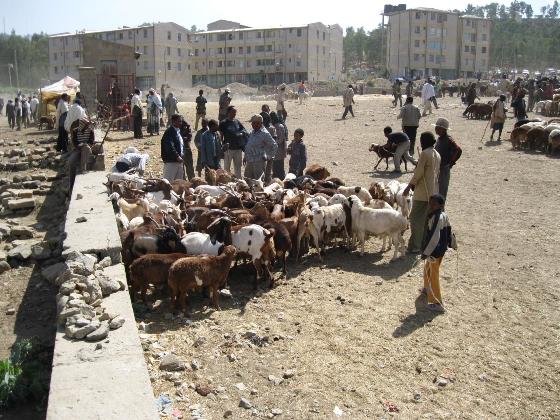It would be perfect, if I say
“Cold parts” rather than cool parts of Africa.
In my thoughts, the complete Africa’s weather was very hot until I decided to
visit Ethiopia.
I was surprised to see in my Google surveys which I did prior to my journey,
that the temperatures are in between 25◦C (day) and 15◦C (night) throughout the
year, except lowlands. Upon my arrival here in Ethiopia, I find it is cooler than
I thought. I always needed a thin jacket or sweater for day out, additionally a
cap (to cover the ears), scarf or shawl for nighttime’s cold wind and a blanket
for bedtimes to face the cold.
Ethiopia is a mountainous country.
Most of the lands are elevated between 1,000m and 4,000m above sea level. Thus
temperature drops less than 15◦C in the highlands at nighttimes. There are
about 25 mountains’ peaks reach above 4,000 meters high. Sometimes snowfalls
occur in the Simien and Bale mountains, particularly on the mountain Ras Dezhen
(4,620m), which has the highest point of Ethiopia.
The elevations provide this cool
weather in most of the country, even though the Equator runs through the
neighboring countries Somalia
(in the east) and Kenya
(in the south). The northern lowland is the hottest part of Ethiopia, which is known as Denakil Depression
or Denakil Desert. This is 125m below sea level,
and the temperature may rise from 33◦C to 50◦C. The Denakil Depression is also
known for sparkling volcanoes, one with permanent lava lakes. Beside northern
lowland, the temperature may increase in eastern, southern and western lowlands
in dry seasons. Normally, the dry season is October – May, and the wet season
is June – September.
Ethiopia’s
north bordering country Eritrea
also has this comparable cool climate influenced by elevation, except east and
west lowlands. Ethiopia and Eritrea are situated in northeast Africa and known as Horn of African countries. Return to
my position, currently I’m at Mekele city which is in the north and elevated above
2,200m. I witnessed 8◦C in a morning of January. In the month of February now,
the temperature increases between 18◦C and 26◦C at daytimes, and drops between
10◦C and 14◦C at nighttimes. I can comfortably discover the African culture and
environment with this cool weather.
Some of my Ethiopia photographs on Instagram:
| Landscape | Ethiopian Siskin | Dry Season | Plums | Tin Roof Houses | Flowers |







No comments:
Post a Comment